Understanding the Intersection of Stress and Sobriety
Stress is an unavoidable part of life and managing it is particularly crucial for individuals in recovery from substance use. High-stress situations can often trigger cravings that lead to relapse, making it essential to adopt both preventive and active management strategies in order to maintain sobriety. This article delves into effective methods and the reasoning behind them, equipping readers with the tools necessary to navigate challenging times without turning to substances.
Strategies for Maintaining Sobriety in High-Stress Situations
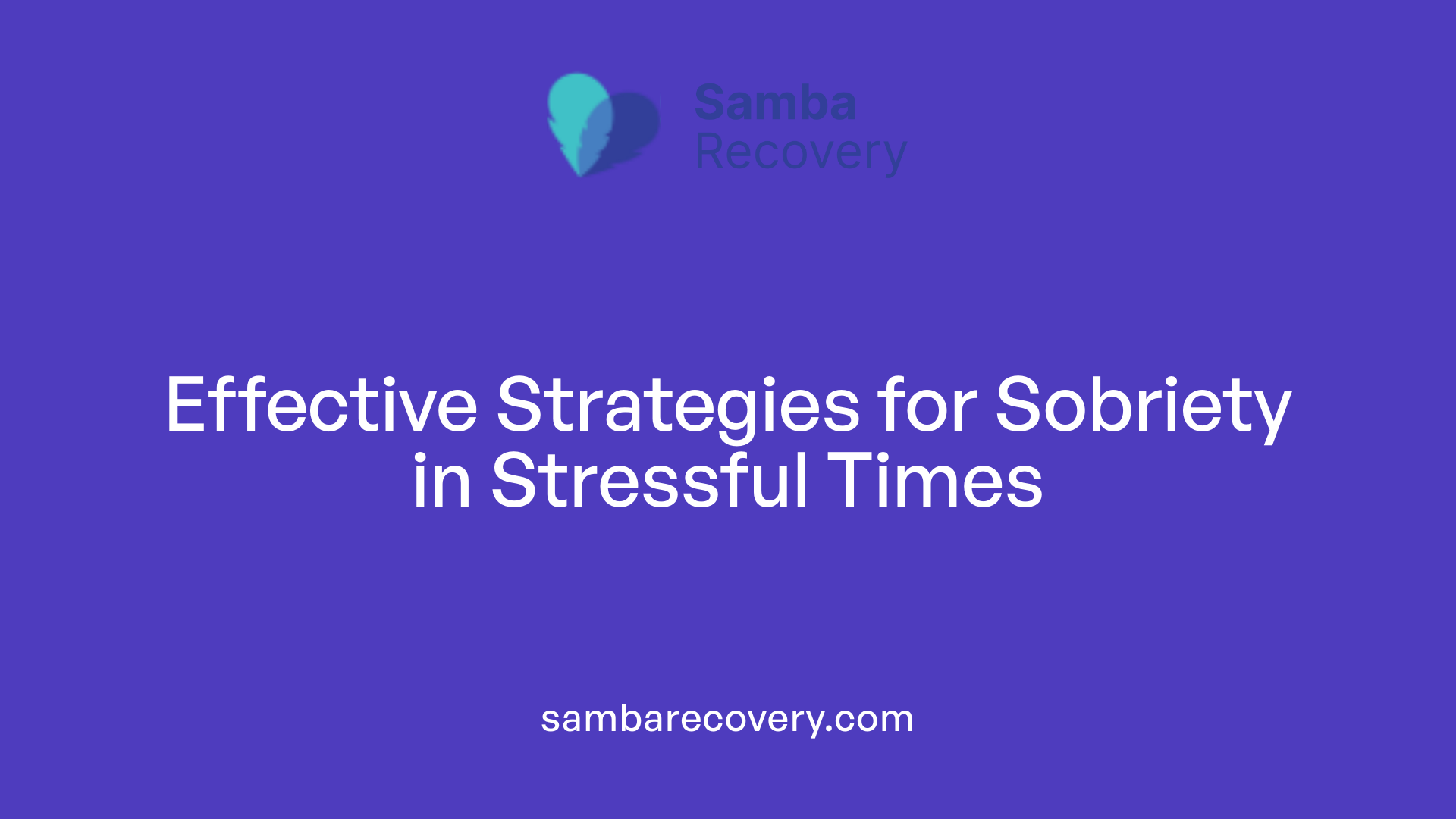
What are some effective strategies for maintaining sobriety during high-stress situations?
To maintain sobriety during high-stress situations, taking proactive measures is essential. Here are some effective strategies:
- Avoid Risky Environments or People
Steer clear of places or individuals associated with past substance use. This helps mitigate triggers and cravings that can lead to relapse. - Build a Strong Support Network
Surround yourself with supportive friends and family. Engaging with communities like Alcoholics Anonymous provides encouragement and valuable accountability. - Learn Stress Management Techniques
Employ techniques like yoga, meditation, and deep breathing exercises to reduce tension. Regularly practicing mindfulness can fortify emotional regulation during challenging times. - Cognitive Behavioral Therapy (CBT)
CBT is effective in identifying negative thought patterns that may lead to cravings. It equips individuals with coping strategies to better navigate stressors. - Engage in Meaningful Activities
Keeping busy with hobbies, volunteering, or exercise can provide positive distractions. Being the designated driver in social settings not only reinforces commitment to sobriety but also creates a purpose in social situations.
Employing these strategies can significantly bolster an individual’s ability to handle stress while maintaining sobriety.
The Connection Between Stress and Substance Use in Recovery
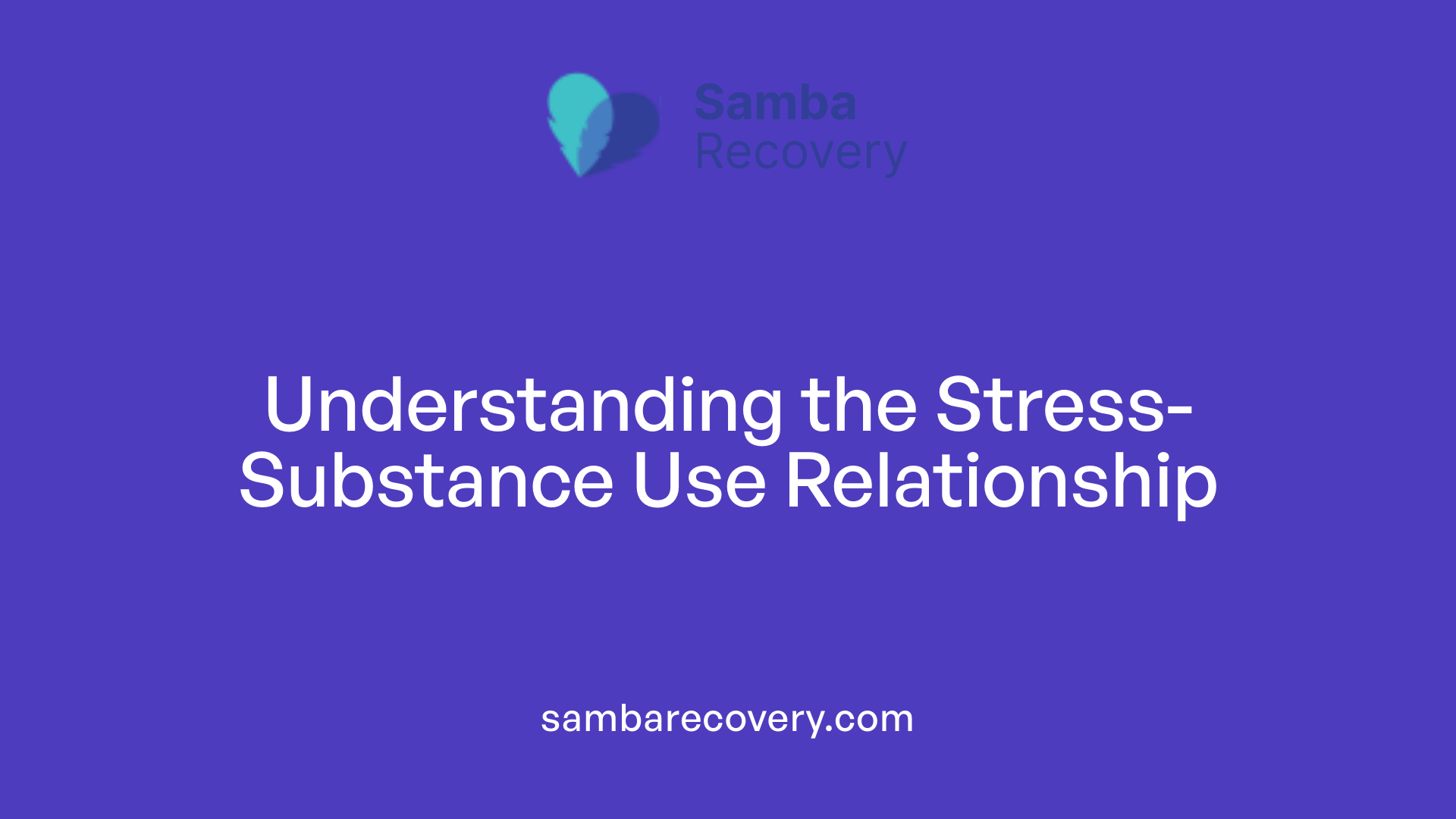
What is the relationship between stress and substance use in recovery?
The relationship between stress and substance use in recovery is complex and bidirectional. Chronic stress can prompt individuals to misuse substances as a mechanism for coping, aggravating their struggles with addiction. Conversely, substance misuse can exacerbate stress levels, creating a vicious cycle that complicates recovery efforts.
Elevated stress responses often impair an individual’s ability to regulate emotions and manage cravings, resulting in impulsive behaviors that heighten the risk of relapse. The most common triggers include:
- Work-related pressure
- Social situations
- Financial stress
- Family dynamics
These factors can significantly impact an individual’s treatment journey, leading to treatment failure if not addressed effectively. Thus, it is critical to implement robust stress management techniques to improve overall recovery outcomes.
Individual-level stressors, as well as environmental triggers, can disrupt progress, increasing the likelihood of relapse. Hence, combining strategies focused on both managing substance use disorders and addressing stress is vital to fostering long-term recovery.
| Factor | Impact on Recovery | Management Strategies |
|---|---|---|
| Chronic Stress | Triggers substance use | Journaling, meditation, exercise |
| Elevated Cravings | Heightens impulsive behaviors | Support networks, therapy |
| Emotional Dysregulation | Increases risk of relapse | Mindfulness, establishing routines |
| Environmental Stressors | Undermines treatment effectiveness | Avoiding triggers, early intervention |
The interplay of stress and substance use underscores the necessity for comprehensive treatment approaches that address both challenges to maintain sobriety.
Implementing the SOBER Technique for Better Stress Management
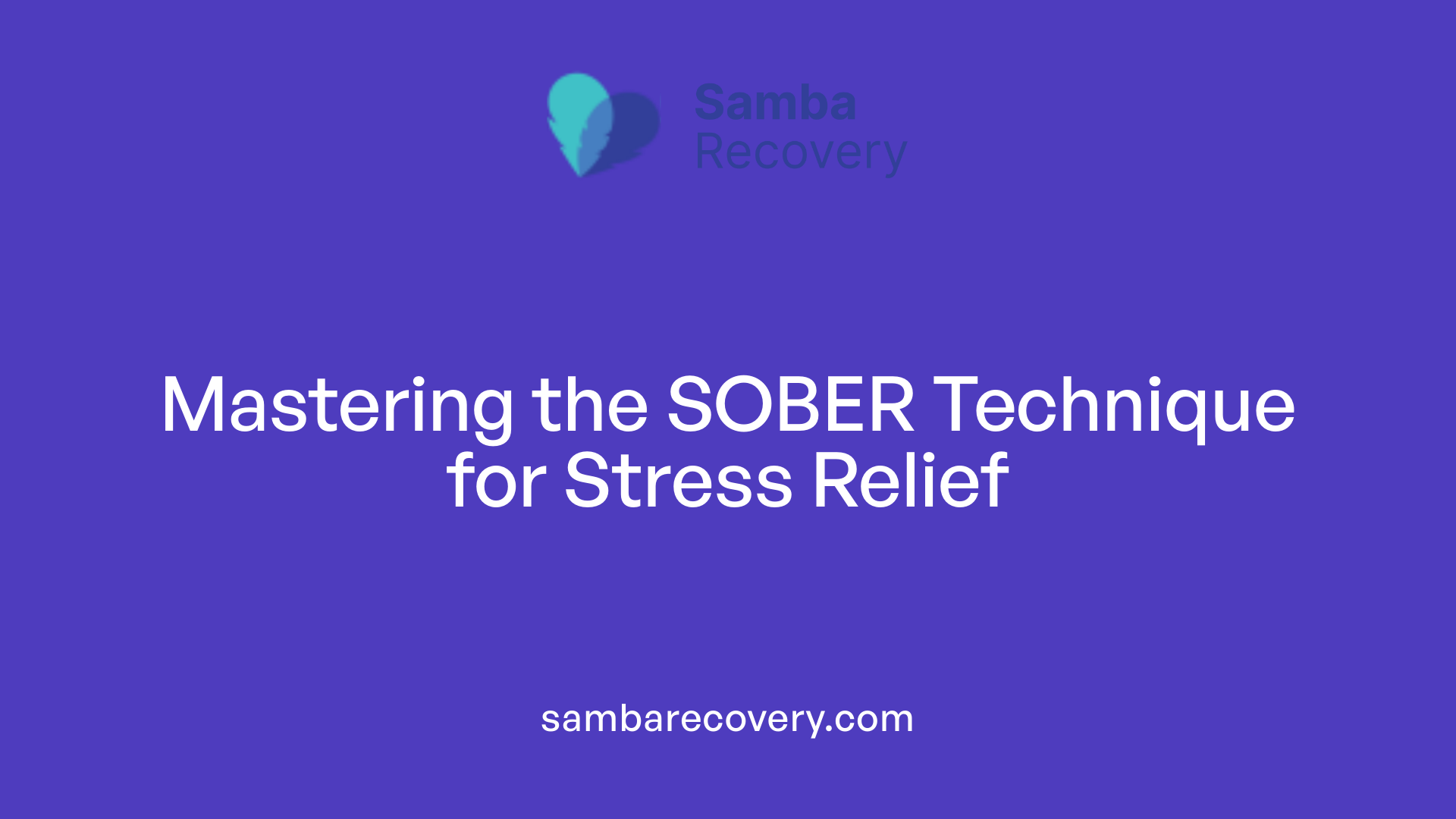
Understanding the SOBER technique
The SOBER technique is an effective method to manage stress, particularly during recovery from substance abuse. It stands for STOP, OBSERVE, BREATHE, EXPAND, and RESPOND, providing a structured approach to navigate high-stress situations.
Step-by-step explanation
- STOP: Pause momentarily when faced with stress.
- OBSERVE: Identify your thoughts and feelings at that moment.
- BREATHE: Take deep breaths to center yourself and reduce anxiety.
- EXPAND: Broaden your perspective, considering possible solutions or responses.
- RESPOND: Make an informed decision based on the previous steps.
Benefits during stress
Employing the SOBER technique enhances self-awareness and emotional regulation, which can significantly lower stress levels. This technique encourages proactive stress management, supporting sobriety by equipping individuals with the tools to effectively deal with life’s challenges.
Building Supportive Networks and Healthy Habits
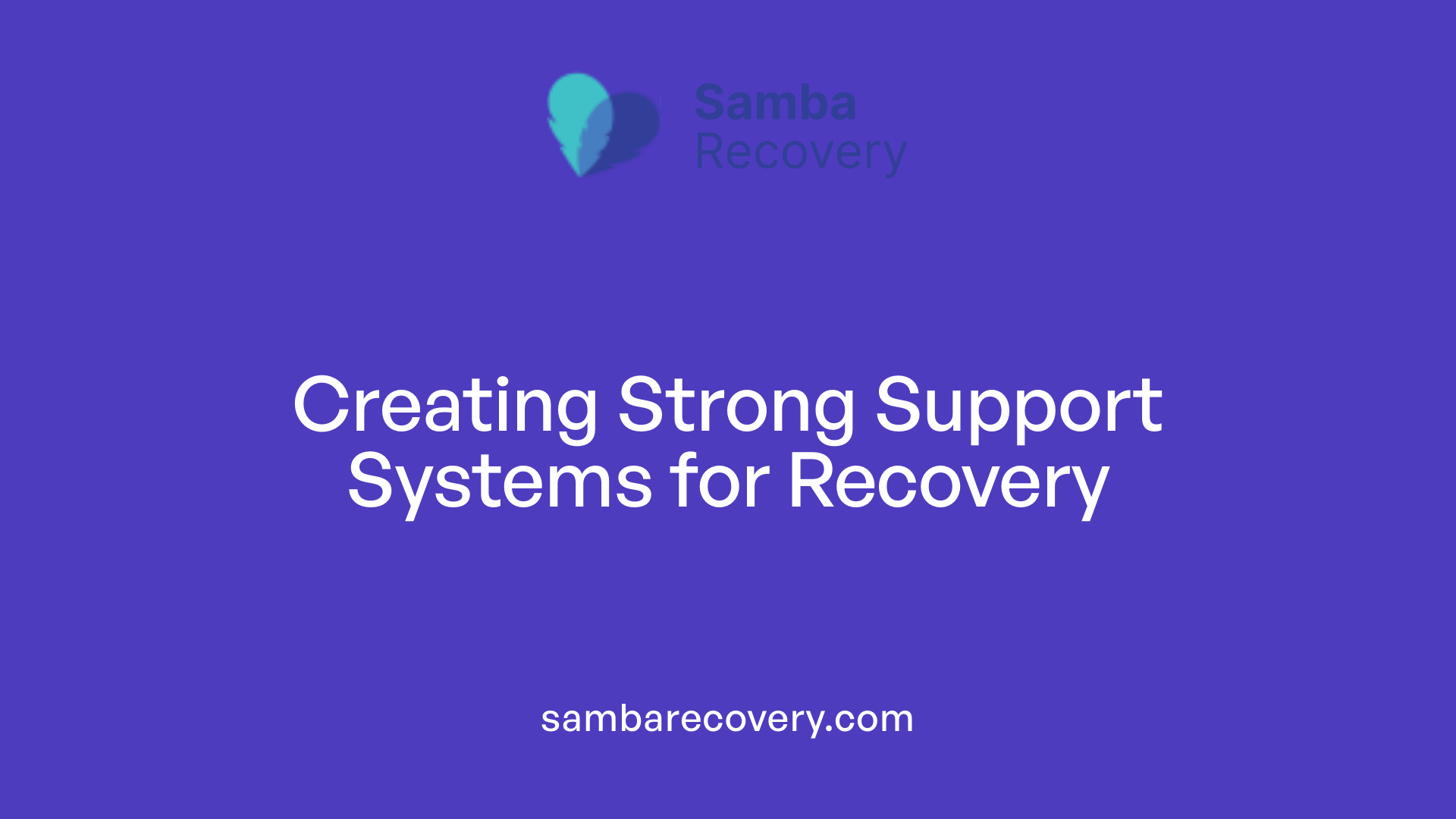
How can I develop support systems and healthy habits to handle stress effectively and avoid relapse?
To navigate the complexities of recovery, establishing a strong support network is vital. This network can consist of supportive friends, family, therapists, and recovery groups, such as Alcoholics Anonymous or Narcotics Anonymous. These connections provide emotional backing and practical assistance, especially during times of increased stress.
Creating a personalized relapse prevention plan is another crucial step. This plan should identify personal triggers, outline effective coping strategies like engaging in hobbies or exercise, and set specific, attainable recovery goals. By proactively addressing challenges, individuals can better manage their responses to stressors.
Maintaining healthy habits is integral to this process. Regular physical exercise, such as yoga or jogging, contributes to better mental and physical health while reducing stress levels. Combining this with a nutritious diet and prioritizing adequate sleep—aiming for 7–9 hours each night—enhances resilience against cravings and anxiety.
Engaging in mindfulness practices, including meditation and breathing exercises, helps cultivate emotional regulation and fosters a calm mindset. Regularly incorporating self-care routines, which can involve journaling or spending time in nature, also promotes overall well-being and mitigates feelings of overwhelm.
Lastly, continuous therapy plays an essential role. Techniques like cognitive-behavioral therapy provide tools for identifying and converting negative thoughts into constructive behaviors, fortifying one’s ability to cope with stress and reducing the potential for relapse.
Self-Care Techniques to Sustain Sobriety
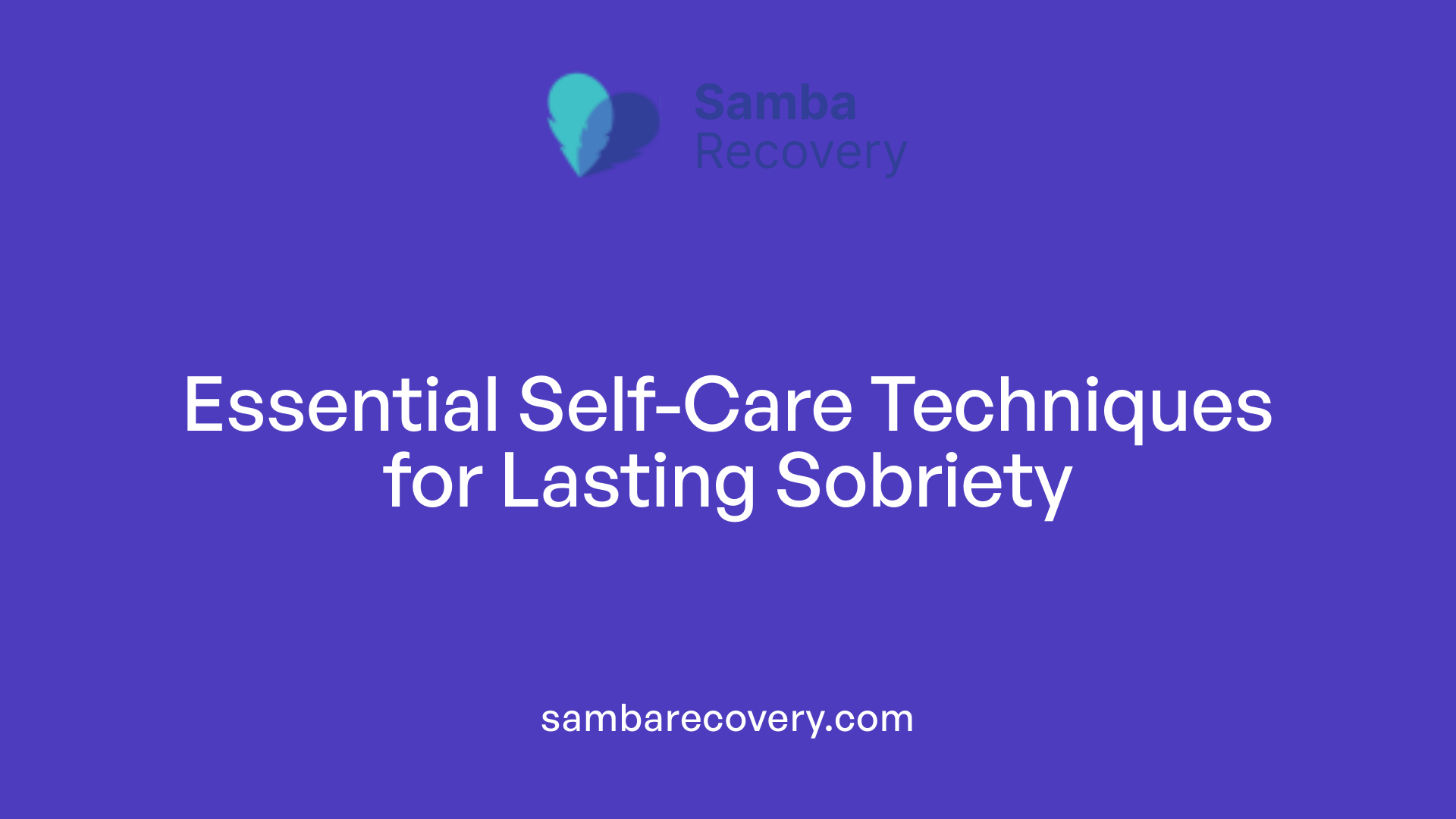
What are some self-care techniques that support sobriety during stressful periods?
Self-care techniques are vital for individuals striving to maintain sobriety during challenging times. Here are some effective methods:
- Regular Exercise: Engaging in physical activities not only boosts endorphin levels but also improves overall mood. Activities like running, yoga, or even brisk walking serve as powerful stress relievers.
- Mindfulness and Meditation: Practices such as deep breathing exercises and mindfulness meditation help promote relaxation and self-awareness. They enable individuals to manage stress effectively, especially in high-pressure situations.
- Supportive Sober Network: Building a network of sober friends and family members is crucial for emotional support. This sense of belonging can ease feelings of isolation and provide shared experiences that help in coping with stress.
- Healthy Lifestyle: Incorporating balanced nutrition and prioritizing sleep are foundational for mental and emotional well-being. Quality sleep (7-9 hours) is critical to reducing stress and maintaining cognitive function.
- Creative Outlets: Engaging in activities like painting, writing, or crafting allows individuals to express their emotions and process experiences in a healthy manner. These creative pursuits can serve as effective stress relievers.
- Time Management: Learning effective time management skills helps reduce feelings of overwhelm. Organizing tasks and making realistic plans allow individuals to navigate daily challenges without resorting to substances.
Planning for Specific High-Stress Occasions
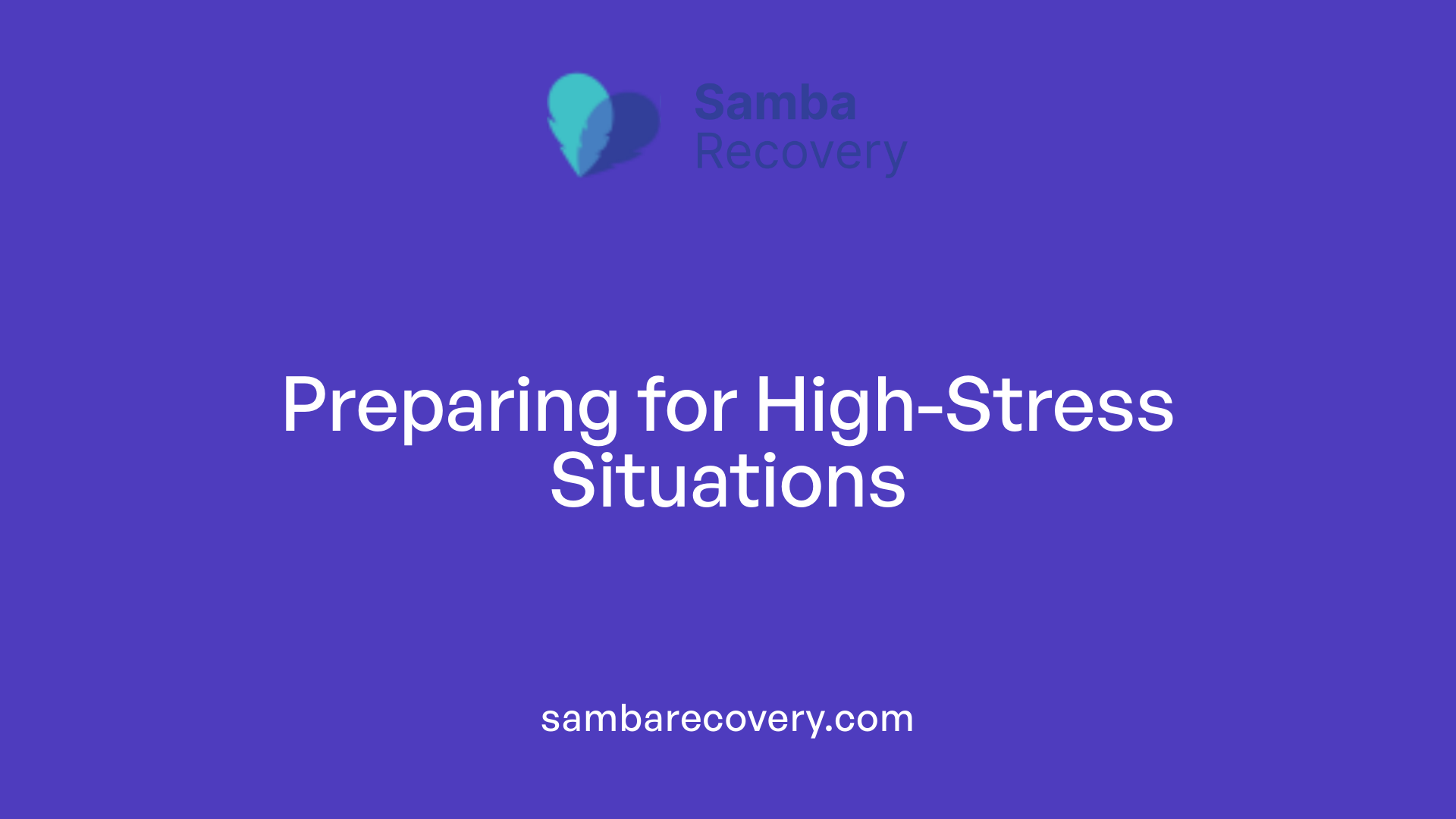
Holidays and Social Gatherings
The holiday season often brings increased stress, which can threaten sobriety. Familiarize yourself with specific stressors like family dynamics or social drinking norms that might tempt you.
Create a Sober Plan
Formulate a comprehensive sober plan in advance. This includes identifying potential triggers and crafting strategies, such as bringing a non-alcoholic beverage or attending recovery meetings before or after gatherings. A clear exit plan can also provide peace of mind if situations become uncomfortable.
Avoid Triggers
Be proactive in avoiding known triggers. Steer clear of environments or people that may provoke cravings. If certain activities or invitations feel risky, don’t hesitate to opt out to protect your sobriety.
Engage in Non-Drinking Activities
Plan enjoyable, alcohol-free activities during celebrations. Engage in hobbies like baking, decorating, or volunteering to remain involved in festivities without compromising your commitment to sobriety.
Leverage Support Networks
Staying connected with your support system is crucial. Reach out to sober friends or recovery groups for encouragement. Attend sober events together, or simply share your thoughts and feelings to maintain accountability throughout high-stress occasions.
Recognizing and Responding to Stress Triggers
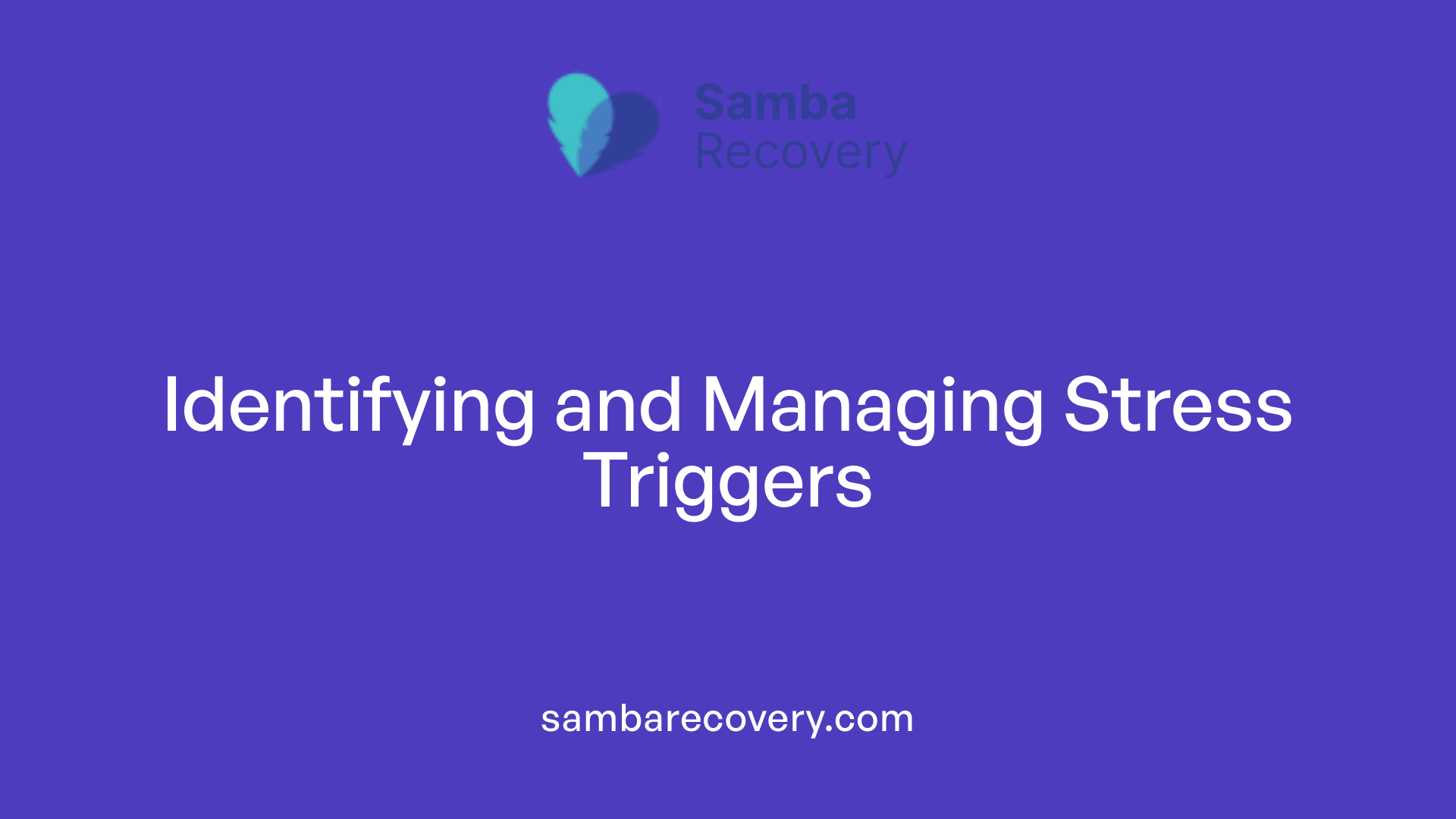
Identify Stress Triggers
Recognizing personal stress triggers is a crucial first step in recovery. These triggers can include high-pressure situations, financial stress, or interpersonal conflicts. Keeping an honest list of these triggers can help you develop effective coping strategies. By identifying what elevates your stress, you can simplify how to manage it.
Develop Healthy Coping Mechanisms
Engaging in healthy activities can significantly reduce stress levels. Consider incorporating exercise, meditation, or creative pursuits like journaling into your daily routine. These outlets provide a positive way to channel your energy and emotions instead of resorting to substances.
Stay Connected with Support
Building a robust support network is essential for navigating stress. Regularly connecting with supportive friends or family, or engaging in recovery communities, can offer emotional resilience when challenges arise. Being able to talk about your struggles alleviates internal pressure and reinforces commitment to sobriety.
Maintain a Routine
Establishing a consistent daily routine provides a predictable structure, which can minimize feelings of chaos. Filling your day with productive tasks helps distract from cravings and reinforces a sense of accomplishment.
Avoid High-Risk Situations
Proactively avoiding environments or situations that might trigger cravings is vital in maintaining sobriety. Recognize where these pitfalls may arise and have a plan in place to sidestep them, ensuring emotional stability during stressful times.
| Strategy | Description | Benefits |
|---|---|---|
| Identify Stress Triggers | Keep a list of what stresses you out | Helps create targeted coping strategies |
| Develop Healthy Coping | Engage in exercise, meditation, or creativity | Provides positive outlets for stress |
| Stay Connected with Support | Talk to friends or join support groups | Offers emotional stability and accountability |
| Maintain a Routine | Create a structured daily plan | Reduces chaos and enhances productivity |
| Avoid High-Risk Situations | Stay away from triggers or challenging environments | Protects against cravings and supports sobriety |
Empowering Sobriety Through Effective Stress Management
Maintaining sobriety during high-stress situations is undoubtedly challenging, yet it is achievable through the implementation of informed strategies and habits. By understanding the interplay between stress and substance use, individuals can better prepare themselves with effective coping mechanisms and support networks. Commitment to self-care and mindfulness practices, alongside personalized planning and professional guidance, paves the way for a resilient and sober life. As stressors arise, relying on proven techniques and community support not only helps in staying sober but also enriches one’s journey toward holistic recovery.
References
- How to Stay Sober During Stressful Times – 10 Key Strategies
- SAMHSA’s National Helpline
- Maintaining Sobriety in Times of Stress – Ashley Addiction Treatment
- 11 Tips To Help You Stay Sober – WebMD
- Tips for Staying Sober During the Holidays | Hazelden Betty Ford
- 6 Ways to Stay Sober When the Going Gets Rough – Exis Recovery
- 7 Ways to Avoid Stress in Recovery
- Staying Sober During the Holidays: How IOPs Provide Support
- How to Stay Sober During the Holiday Season | RCA






